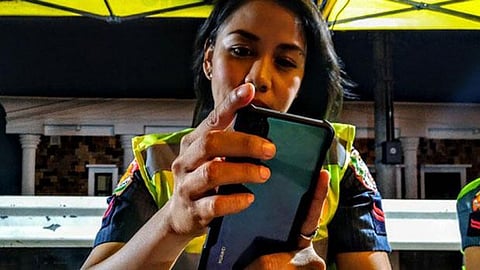FILE – The logos of Huawei are displayed at it retail shop window reflecting the Ministry of Foreign Affairs office in Beijing, Jan. 29, 2019. VOA
Pompeo warned that any deals with Huawei, which makes 5G technology, risk handing over data to the Chinese government.
"Similarly, American companies are best partners in the priority areas of infrastructure, development and the digital economy because they operate with the highest standards of transparency and adherence to the rule of law," Pompeo had said. "The same cannot be said of Chinese state-run or state-backed enterprises."
He singled out Huawei, and warned that it would make it more difficult for Washington to partner with Manila if its longtime defense ally readily agreed to the use of Huawei Technologies' apparatus.
Pompeo said that the United States wants "to make sure that the world has their eyes wide open as to the risk of having that technology be part of the infrastructure, or backbone, or networks that are transiting communications inside of the country."
Jiri Ovcacek, spokesman for Czech President Milos Zeman, who visited Beijing last week for China's One Belt, One Road infrastructure forum, told Chinese media that the West's "campaign against Huawei was not based on evidence," according to the South China Morning Post.


